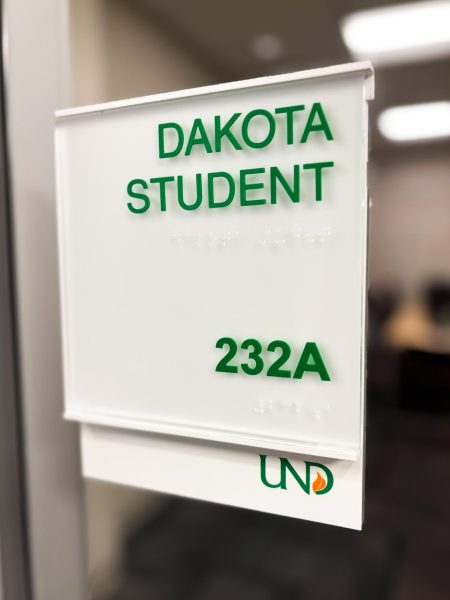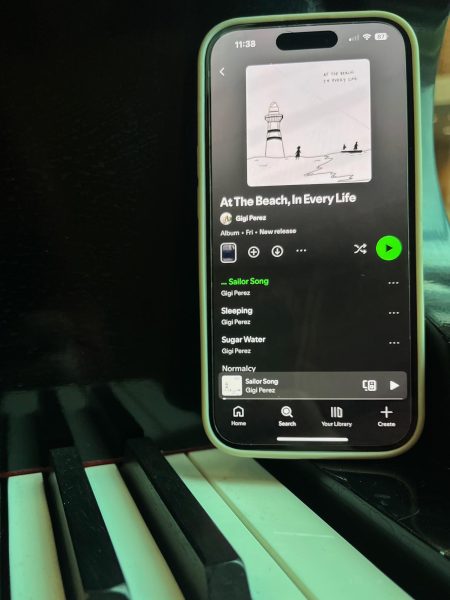‘Easy A’ classes are still chances to learn
Have you ever been in that one class? You know which class I mean — the class you’re incredibly overqualified for. Were you given all the exams at once, you could pass them all with flying colors on the first day.
Most of us have had that class. Those of you who haven’t probably will eventually. It’s a class we don’t want to be in but have to take. For some of us, it’ll be a math class. For others, a history course. It doesn’t matter what it is, but it is, for you, that one class that becomes the bane of your existence because it’s so dang easy.
Maybe it’s easy because you’re an upperclassman in a 100 level class you need for graduation credit. Maybe it’s easy because you’ve extensively studied the mating habits of the mallard duck on your own and don’t need a class to tell you what you already know. But, for whatever reason, you’re stuck in the class that you’ve labeled “the easy A.”
I find this class incredibly frustrating. In the past, I found myself thinking — rather arrogantly, I admit — “Why can’t I just test out of here? I don’t need to be here! This is a waste of my time and my money!”
Often, when grumping about it to a friend or a relative, I get the response, “Just turn your brain off. It’ll be an easy A, and you should be able to skate by.”
Initially, I did just this.
But I’ve changed my attitude over the years. It started with the fundamental question: What am I supposed to get out of college? This question has many answers, and they’re different for everyone, but I think we can safely boil it down into something we can all agree on — we are here to learn.
But learn what? Sure, some of us are learning the “old stuffy stuff” written by old dead white guys while others are learning how to change the future with engineering, science and math. We’re all “learning” different things, so how is it possible that we all come into contact with this same problem?
I could point out the fact that part of the college system is a bureaucracy in which we must jump through hoops in order to graduate. And sometimes those hoops will be just a couple of inches off the ground even though we’ve been instructed to jump as high as we possibly can.
Sometimes, we need to take these hoops, these classes that we are not giving 100 percent effort for, and get a bit creative. If we are here to learn, then learn we must. There is nothing that says it must be in the prescribed form.
I have always believed in giving 100 percent effort when it comes to classes. In practice, I wish I could say I live up to that. But that doesn’t mean I shouldn’t try to give my all. These classes where I’m told to “just get the easy A” become a problem, logically, for me. What percentage am I supposed to give if not all of it? What is doing just enough to get by?
It occurred to me that I was asking the wrong questions.
Instead of moaning and groaning about how I already knew all of this material — again, forgive my arrogance, but we each have things we’re good at — I should have been looking at the class through a different, more humble lens. Namely: What can I learn from this course?
Sure, the answer will be easy in some situations. But often we have to look beyond the syllabus and beyond the class itself.
In these “skate by classes,” I have learned a lot. Maybe it wasn’t what the syllabus said, but I have learned how to grit my teeth and get through it. I’ve learned how to network. I’ve learned how to assist students who don’t get the material. I’ve learned how to give full effort in a class where giving half would still earn an A.
It all comes down to what we’re supposed learn versus what we choose to learn. Sure, there’s the syllabi that write it all out, but there is a much deeper lesson that might be lurking beneath the surface of the “easy A class.”
Believe it or not, these classes teach life skills that will help us in the future. They may not be obvious, but they are just as valuable. Just as we shouldn’t judge a book by its cover, maybe we shouldn’t judge a class by its syllabus.
Kjerstine Trooien is a staff writer for The Dakota Student. She can be reached at kjerstine.trooien@my.und.edu.






